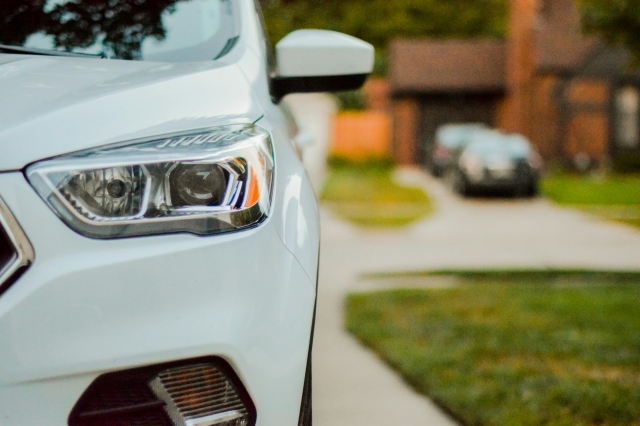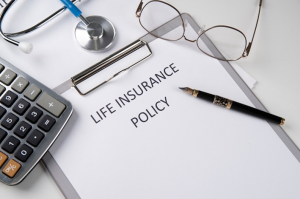Car accidents can occur in an instant, often for no fault of your own. So, if you are hurt in an accident, it's an excellent move to consider getting personal injury protection insurance. This will help you with coping with lost money and medical expenses. PIP is one of the most important yet overlooked elements of auto insurance. Here's what you need to know about this coverage.
Understanding Personal Injury Protection (PIP) Coverage
No matter who is at fault in an accident, personal injury protection (PIP) is an aspect of auto insurance. It pays for your passengers and your own medical bills.
As per Marketwatch, this coverage is mandatory in 12 states with no-fault insurance systems and optional in some others.
PIP insurance typically has a per-person limit, meaning there's a maximum coverage for each injured individual in a single incident. If medical costs exceed these limits, health insurance may cover additional expenses.
Key aspects of PIP coverage often include:
- Emergency and ongoing medical treatment
- Diagnostic procedures and medical equipment
- Lost income compensation
- Essential household services
- Funeral expenses in case of fatality
It's important to note that PIP doesn't cover vehicle damage caused by other drivers. Such damages usually fall under the at-fault driver's property damage liability coverage.
Also, some states have specific requirements for PIP coverage. For instance, Michigan drivers may need to provide documentation from their health insurer or employer detailing their health coverage. As per DIFS, they must also confirm that it doesn't exclude auto accident injuries. The policy should also have an individual deductible below $6,000. Those with Medicare or Medicaid might need to show proof of enrollment.
Personal Injury Protection Coverage Examples
Drivers need to carry a minimum of $10,000 in coverage in locations like Florida where PIP is required. If you were in an accident resulting in $15,000 in medical expenses, your PIP would cover the first $10,000. Higher coverage limits would provide more protection for your expenses.
In Georgia, while PIP isn't required, it's one of several optional coverages drivers can purchase to enhance their protection. Other valuable options include comprehensive coverage for collisions, uninsured/underinsured motorists, and medical payments.
A recent accident in Atlanta, Georgia, illustrates the potential importance of such coverage. In June 2024, a collision occurred between a Ford Edge and a Volkswagen Jetta at an intersection. Both drivers sustained injuries requiring hospitalization. This type of accident goes on to show why comprehensive insurance coverage can be crucial.
Although victims of no-fault accidents may be able to claim PIP benefits, dealing with the insurance process can be challenging. Seeking guidance from a qualified Atlanta car accident lawyer may improve your chances of obtaining appropriate reimbursement while allowing you to focus on recovery.
According to Atlanta Personal Injury Law Firm, a skilled attorney can effectively counter the strategies employed by insurance adjusters. This helps ensure that the settlement offer is fair and thorough.
Mandatory Personal Injury Protection Across the United States
The required coverage amounts differ significantly from state to state. As per NerdWallet, here's a breakdown of PIP requirements in these jurisdictions:
- New York leads with the highest mandated coverage at $50,000
- Minnesota follows at $40,000
- North Dakota requires $30,000
- Delaware, New Jersey, and Oregon each mandate $15,000
- Florida and Hawaii both require $10,000
- Massachusetts sets the bar at $8,000
- Kansas asks for $4,500
- Utah has the lowest requirement at $3,000
- Michigan's requirements are unique and vary based on individual circumstances.
Comparing Personal Injury Protection and Medical Payments Coverage
While PIP and MedPay share similarities, they have distinct differences that prevent them from being offered together on a single policy. Let's examine some key distinctions:
- State-by-State Availability: PIP is required in no-fault states and optional in certain at-fault states. In contrast, MedPay is not offered in jurisdictions with no faults.
- Deductible Structure: MedPay typically doesn't involve deductibles for covered medical treatments. PIP, however, often includes deductibles, and policyholders may also need to consider their health insurance deductibles.
- Scope of Benefits: PIP provides more comprehensive coverage than MedPay. While both cover medical expenses, PIP can also encompass additional costs such as lost income and childcare services resulting from an accident.
FAQs
1. How does Personal Injury Protection (PIP) differ from full coverage?
A: PIP complements your existing health insurance by covering injury-related expenses. It's important to note that PIP is distinct from comprehensive and collision coverage. The latter two protect your vehicle against accident-related damage and non-collision incidents like theft or weather-related harm.
2. What does Personal Accident cover for drivers entail?
A: While it's unpleasant to contemplate, unexpected incidents can occur, potentially leading to substantial medical expenses. Personal accident coverage aims to safeguard you financially in case of severe bodily harm or fatality resulting from an accident.
3. Is it advisable to have both Medical Payments coverage and PIP?
A: Generally, purchasing both MedPay and PIP is unnecessary due to overlapping benefits. Both cover medical costs for you and your passengers, regardless of fault. However, PIP offers more extensive protection, including compensation for lost wages and household services, which MedPay doesn't provide. In states where both are available, PIP offers superior coverage and is often recommended.
Whether you drive in a mandatory or optional PIP state, taking a moment to understand this coverage is crucial. It could save you significant costs if an accident occurs. After an injury, don't leave something as crucial as your financial security up to chance. Make sure you have the PIP limits that align with your needs.






